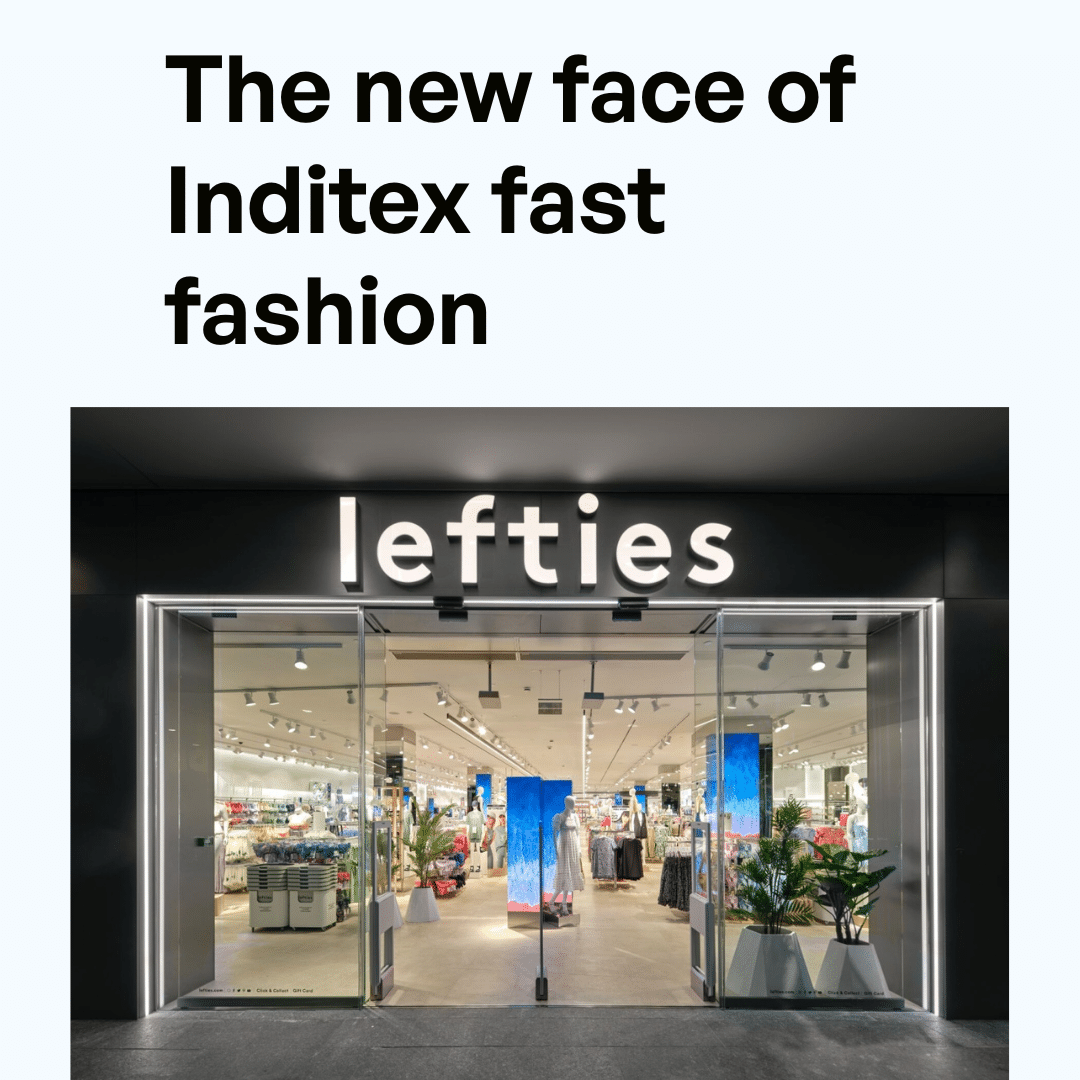Lefties: Inditex’s umpteenth ploy not to give up fast fashion
While the world is (rightly) questioning the environmental and social impact of fast fashion, Inditex – the Spanish giant behind Zara, Bershka, Pull&Bear and many others – is making a clear choice: not to slow down, but to speed up. And it does so by pushing on Lefties, a low-cost brand designed to compete directly with Shein and Temu.
At a time when more responsibility is expected of fashion companies, Inditex responds by creating an in-house copy of Shein. A step backwards, disguised as a business strategy.
⸻
Lefties: from outlet to ultra fast fashion machine
Lefties was founded in 1999 as an outlet to dispose of Zara’s waste. A silent, functional, marginal operation. But today it has become an independent brand, with shops all over the world, its own collections and a well-defined identity: hyper-cheap, hyper-fast, hyper-ephemeral garments.
With prices bordering on the ridiculous (jeans for €17.99, dresses for €7.99, bags for €5.99), Lefties fits into the same toxic niche occupied by Shein and Temu: the one where fashion is disposable by definition.
⸻
Clean Zara… dirty elsewhere
Inditex is simultaneously repositioning Zara as a “high-end” brand. Rising prices, refined styling, “luxury” collaborations. A shrewd move: Zara cleans up its image, while Lefties picks up the less affluent customers, the ones Zara no longer wants.
The implicit message is clear: “If you can’t afford Zara, it doesn’t matter – we have created an even cheaper alternative for you. But still ours.”
⸻
The war of likes: Lefties vs Shein
Shein is a digital giant: algorithms, micro-influencers, hauls on TikTok. Lefties wants to do the same. Carefully chosen influencers, very young targets, ultra pop aesthetics. A fashion devoid of meaning, emptied of any cultural value, sold at scroll time.
⸻
Global expansion = multiplication of damage
Lefties is not just a digital brand. It is opening megastores in Spain, Turkey, Saudi Arabia, Mexico, Romania. Inditex wants to colonise emerging markets, exporting its hyper-rapid consumption model where ecological consciousness is less present or less listened to.
A globalisation of fast fashion 2.0, perfectly packaged to look smart, but based on the same old mechanisms: exploitation of labour, waste, incessant production.
⸻
A missed opportunity (again)
Instead of using its influence to reverse course, Inditex chooses to run faster in the wrong direction. It does not innovate. It does not question itself.
It simply doubles down: Zara for those who want to “feel sustainable”, Lefties for those who are forced to choose on the basis of price alone.
And so, while the world calls for a fairer fashion system, the fashion giants respond with the only thing they know how to do: more clothes, faster, at lower and lower costs.
⸻
Final reflection
Lefties is not just a brand. It is a symptom.
It is proof that fast fashion is not dying, but branching out, camouflaging, strengthening.
And as long as change is left in the hands of those who built this system, we cannot expect anything different.
Edited by Cosimo Martucci

